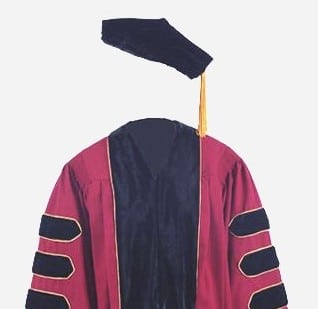I recently read an article by Anne-Marie Slaughter titled “Why Women Still Can’t Have it All.” It is a new (and honest) reflection of an old issue that many highly educated women nowadays face: the difficulty of work/family balance. Anne-Marie Slaughter is a Princeton professor and previously the director of policy planning for the U.S. State Department. She is the type of woman I would name as a role model. It is refreshing to hear women like her talking about the difficult choices between “being there for the family” and “having a successful professional career,” about the source of the problem being something larger than the woman’s commitment or ambition.
Here in China, although predominant gender ideology (with roots in Confucianism) still sees men as the primary breadwinners and women as the primary care-givers, my generation of women are gradually finding our places in higher educational institutions and high-achieving professional tracks. However, behind the apparent image of gaining equality, another set of problems arises and persists. Being highly educated and having a successful career for women often translates to weary prospects in the marriage market. There is even a joke that there actually exists three types of human beings: men, women, and female PhDs. When I was beginning my doctoral training, an acquaintance said: “Congratulations! But tell me, do you have a boyfriend?” At that time, I didn’t. “And you are now getting a PhD? No man will dare to date or marry you now.” There was really no appropriate response excepting to laugh.
One balmy Friday night this spring, at a local bar near campus, the same topic came up. This time, it was with several fellow female PhD students from all over the world. I learnt that PhD has been jokingly dubbed as “Putting Hubby Down” in the English language–and it dawned on me that the problem facing highly educated professional women today is by no means a phenomenon limited to one country, or one cultural context.
As a student of sociology, part of my academic interest is gender and society. However, just reading about the glass ceiling, the wage and achievement gap, and gender stereotyping is still drastically different from experiencing it. And sometimes, the knowledge you get from journal articles does not really help you in “real life” against questions and judgments like “Why do you want education when it’s going to be make you undesirable as a woman?” or “You cannot work and be a good mother.” I do not have the solutions yet to the almost paradoxical relation between being a successful person and gender ideology. But it is truly great to see women like Anne-Marie Slaughter raising similar issues.
And to me, it is never about “having it all” (as sacrifices and choices are intrinsic and inevitable to the human condition). However, it is about being what you want to be, and having the same right to happiness no matter what that is.
日前,读到Anne-Marie Slaughter教授的一篇文章,题为《女人为何依然无法两全其美》 (“Why Women Still Can’t Have it All.)Anne-Marie Slaughter是美国普林斯顿大学的教授,曾任美国国务院外交政策的主管——她是我希望未来的自己,可以成为的样子。这篇文章,探讨当代高学历女性仍然面对的困境——如何平衡家庭与事业——Anne-Marie Slaughter 讨论,深刻而恳切,而她指出,女性所面对的家庭与事业间看似难以调和的矛盾,其实并非是女性对家庭的承诺与对事业的野心不够,这么简单。
在千年儒家文化的熏陶下,如今的中国社会,仍然存在着”男主外,女主内“的性别角色分工。然而,我们这一代女性,已经开始渐渐地追寻自己的教育与事业发展。然而,这向着性别平等迈进的步伐背后,一系列问题暗流汹涌。拥有傲人学历职业的女性往往在婚姻市场上处于较劣势地位。人们甚至调侃,世界上有三种人:男人,女人,和女博士。在我准备开始修读博士学位前,有个熟人曾问我:“祝贺!不过你现在有男友吗?”——那时我没有。 “那你还读博?不怕以后没男人敢要你?!”——这样的时刻,似乎也就只能一笑而过罢。
而再一次说起个话题,是今年春天,一个温暖的星期五晚上。只不过这次,是与来自世界各地的女博士生们。谈话中,我知道了PhD 在英文里还被戏称为“Putting Hubby Down” (让老公没面子)。我才恍然意识到:高学历的职业女性在爱情与家庭方面所面临的选择与困境,或许并非局限于一个国家,或是一个文化语境的问题。
作为社会学专业的学生,我的研究兴趣之一便是”性别社会学“。然而,从文献中阅读男女不平等的现象,与感同身受间,毕竟还有着巨大的差别。学术文献或许可以让我理解”职场玻璃天花板“”性别工资差异“——知道那些被学术概念化的一切,可它们,又将如何教会你,应对生活中每日出现的问题与评论:“高学历女人没人敢要,你为何还要继续修学?” “你如果工作那就不可能成为一位称职的母亲。”——面对这样的困境,我至今没有找到答案。然而,能看到卓越如Anne-Marie Slaughter 这样的女性,也开始诚恳地承认并反思这一问题,终究是一件好事。
对我而言,真正的问题并不在于贪心地想要鱼与熊掌兼得(选择和牺牲,是生命本身的一部分)。 真正的问题是:人人都有权利成为他/她想成为的人,而这样的权利,不分性别。


